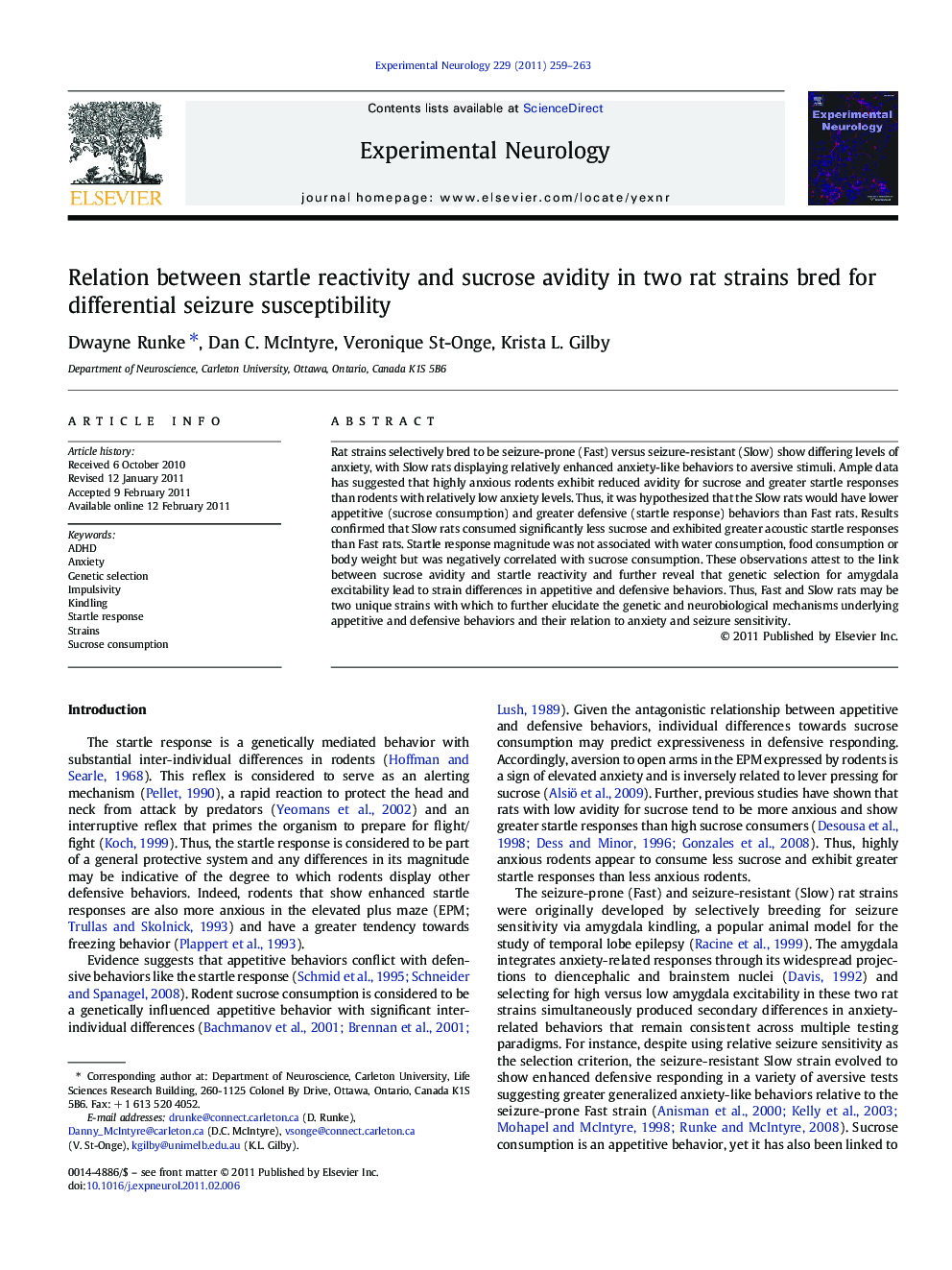| کد مقاله | کد نشریه | سال انتشار | مقاله انگلیسی | نسخه تمام متن |
|---|---|---|---|---|
| 3055801 | 1186539 | 2011 | 5 صفحه PDF | دانلود رایگان |

Rat strains selectively bred to be seizure-prone (Fast) versus seizure-resistant (Slow) show differing levels of anxiety, with Slow rats displaying relatively enhanced anxiety-like behaviors to aversive stimuli. Ample data has suggested that highly anxious rodents exhibit reduced avidity for sucrose and greater startle responses than rodents with relatively low anxiety levels. Thus, it was hypothesized that the Slow rats would have lower appetitive (sucrose consumption) and greater defensive (startle response) behaviors than Fast rats. Results confirmed that Slow rats consumed significantly less sucrose and exhibited greater acoustic startle responses than Fast rats. Startle response magnitude was not associated with water consumption, food consumption or body weight but was negatively correlated with sucrose consumption. These observations attest to the link between sucrose avidity and startle reactivity and further reveal that genetic selection for amygdala excitability lead to strain differences in appetitive and defensive behaviors. Thus, Fast and Slow rats may be two unique strains with which to further elucidate the genetic and neurobiological mechanisms underlying appetitive and defensive behaviors and their relation to anxiety and seizure sensitivity.
Research highlights
► Seizure-prone (Fast) rats drink more sucrose than seizure-resistant (Slow) rats.
► Fast rats drink more water than Slow rats.
► Weight and food consumption are similar between strains.
► Fast rats have lower baseline startle responses than do Slow rats.
► Startle responses are negatively correlated with sucrose, not water or food, consumption.
Journal: Experimental Neurology - Volume 229, Issue 2, June 2011, Pages 259–263